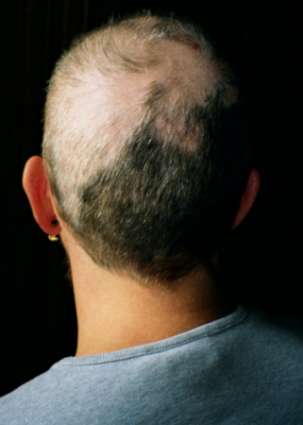TRICHOTILLOMANIA
TRICHOTILLOMANIA
Promentis’ lead clinical molecule, SXC-2023, has the potential to restore alterations in glutamate signaling and imbalances in inhibitory control reported to underlie various neuropsychiatric disorders such as obsessive-compulsive and related disorders, substance-related and addictive disorders and other neuropsychiatric disorders.
Promentis’ first indication is trichotillomania, a disabling and underrecognized condition that is estimated to effect approximately 1% of the US population.
TRICHOTILLOMANIA.
Trichotillomania (TTM) is a chronic mental illness characterized by recurrent hair pulling, leading to noticeable hair loss and substantial adverse impact on quality of life, health and employment. Trichotillomania is also associated with psychosocial problems, including low self-esteem, social anxiety, avoidance of intimacy, and interference with job duties/career advancement. Within the most recent 5th edition of the DSM, TTM is included as a separate disorder (within the broader category of “Obsessive-compulsive and related disorders”).
TREATMENT.
There are no FDA-approved therapies that can be prescribed to patients confronting TTM.
NEUROBIOLOGY of TRICHOTILLOMANIA.
Studies have linked abnormal signaling in brain circuitry to the underlying pathophysiology of TTM, which is proposed to include perturbations in glutamatergic neurotransmission and/or heightened levels of oxidative stress. Imaging studies conducted in TTM patients have identified alterations in brain regions implicated in the regulation of inhibitory / urge control, rewarding behaviors, motor habits, mood, and executive function (Chamberlain et al., 2010; Chamberlain et al., 2008; Grant and Chamberlain, 2016; Roos et al., 2015), as key contributors to the pathophysiology of TTM and related disorders implicating impulse control, e.g. excoriation (skin picking) disorder. Additionally, functional deficits in glutamate signaling within the cortical-striatal pathway and mesolimbic system (i.e., nucleus accumbens) have been proposed to contribute to the underlying pathology and symptoms of TTM (Grant et al, 2009).
ADDITIONAL Links
The TLC Foundation for Body-Focused Repetitive Behaviors
Promentis Pharmaceuticals Clinical Trials

A pattern of incomplete hair loss on the scalp of a person with trichotillomania.

